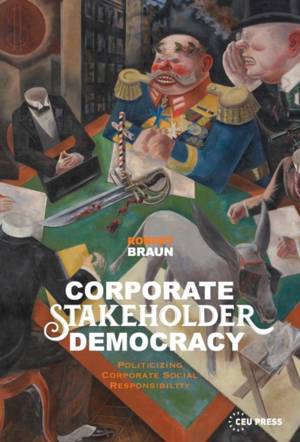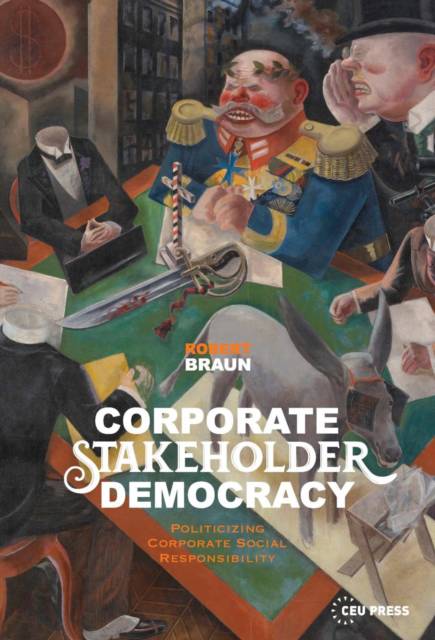
- Afhalen na 1 uur in een winkel met voorraad
- Gratis thuislevering in België vanaf € 30
- Ruim aanbod met 7 miljoen producten
- Afhalen na 1 uur in een winkel met voorraad
- Gratis thuislevering in België vanaf € 30
- Ruim aanbod met 7 miljoen producten
Zoeken
Corporate Stakeholder Democracy
Politicizing Corporate Social Responsibility
Robert Braun
Hardcover | Engels
€ 109,45
+ 218 punten
Omschrijving
Most practitioners and decision makers look at corporate social responsibility (CSR) as a socially responsible management practice on top of what company leaders generally do: focus on the sustainable, long term financial profitability of their corporation. This book focuses on a political understanding of CSR: the author bridges politics with corporate social responsibility and in a creative and provocative manner. Braun seeks to explore why and how corporations are to be seen as political actors with important roles in our current societies. The first part discusses the social context, the various stakeholder approaches and it also endeavors - with the help of the historic/political parallel of the bourgeois revolutions in the 19th century - to define the corporate polity. The second part analyses the new kind of political operational logic from the viewpoint of the different areas of corporate operation; it gives an overview of the consequences for the individual areas of operation and indicates how corporate policy can be realized in the given field of operation. The third part of the book introduces the institutions necessary for the creation of the corporate polity.
Specificaties
Betrokkenen
- Auteur(s):
- Uitgeverij:
Inhoud
- Aantal bladzijden:
- 352
- Taal:
- Engels
Eigenschappen
- Productcode (EAN):
- 9789633862926
- Verschijningsdatum:
- 10/04/2019
- Uitvoering:
- Hardcover
- Formaat:
- Genaaid
- Afmetingen:
- 159 mm x 235 mm
- Gewicht:
- 612 g

Alleen bij Standaard Boekhandel
+ 218 punten op je klantenkaart van Standaard Boekhandel
Beoordelingen
We publiceren alleen reviews die voldoen aan de voorwaarden voor reviews. Bekijk onze voorwaarden voor reviews.











